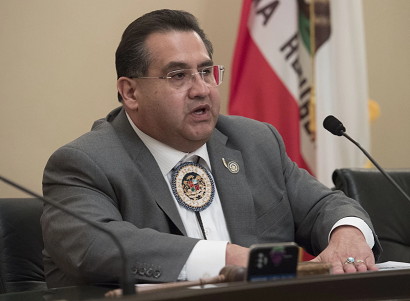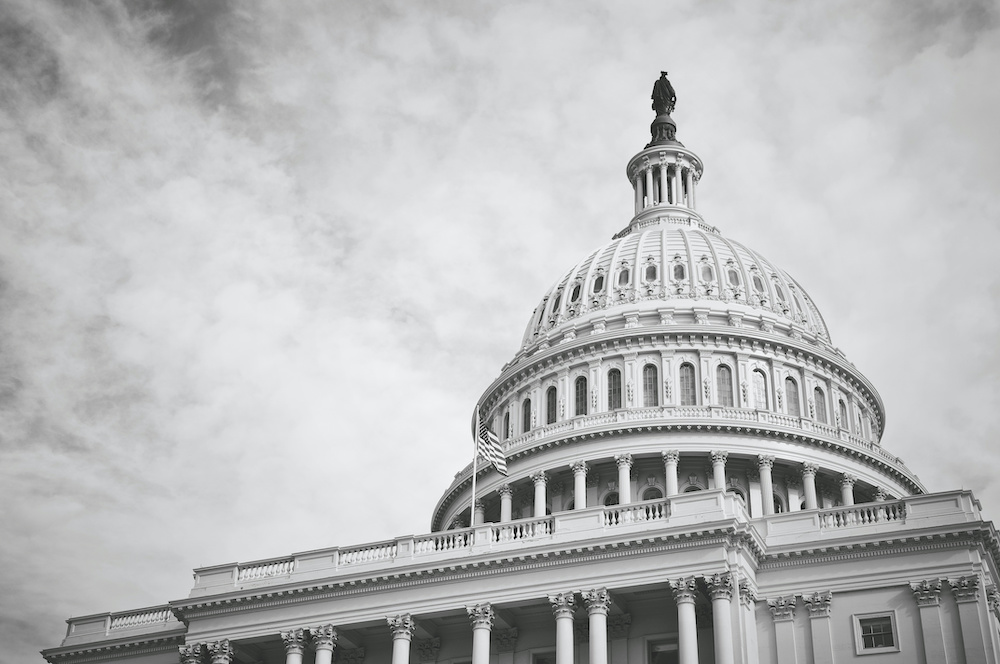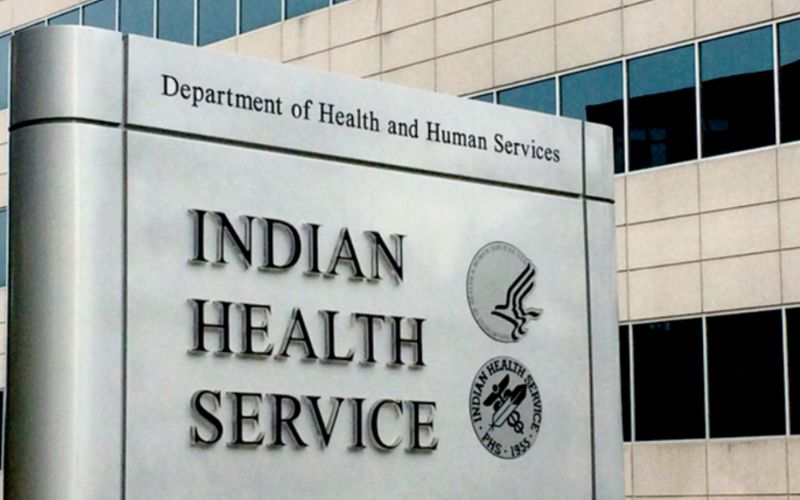Health
- Type: Default
- Ad Visibility: Show Article Ads
- Reader Survey Question: No Question
- Video Poster: https://nativenewsonline.net/images/10_Years_Logo.png
On Tuesday, September 30, the Missing and Murdered Diné Relatives (MMDR) Task Force held a work session to assess the ongoing development of a sovereign database system spearheaded by Navajo Technical University (NTU) and database consultant Dr. Gil Gonzales.
- Details
- By Native News Online Staff
- Type: Default
- Ad Visibility: Show Article Ads
- Reader Survey Question: No Question
- Video Poster: https://nativenewsonline.net/images/10_Years_Logo.png
California Gov. Gavin Newsom has signed key legislation authored by Assemblymember James C. Ramos (D-San Bernardino), the first and only California Native American serving in the Legislature. aimed at preventing suicides by implementing new safety measures on California’s bridges and overpasses. The bill, AB 440, is part of Ramos’s ongoing efforts to improve mental health care access and outcomes across the state.
- Details
- By Levi Rickert
- Type: Default
- Ad Visibility: Show Article Ads
- Reader Survey Question: No Question
- Video Poster: https://nativenewsonline.net/images/10_Years_Logo.png
Chumash Casino Resort kicked off its annual Project Pink campaign today, Oct. 1, in support of Breast Cancer Awareness Month. Throughout October, the resort will feature an assortment of pink-themed sweets, snacks, and beverages at its dining venues to raise funds for a local nonprofit.
- Details
- By Native News Online Staff
Advance Appropriations Largely Shield IHS from Shutdown, but Tribal Healthcare Would Feel the Freeze
- Type: Default
- Ad Visibility: Show Article Ads
- Reader Survey Question: No Question
- Video Poster: https://nativenewsonline.net/images/10_Years_Logo.png
Congressional leaders left the White House on Monday afternoon after meeting with President Donald Trump without a deal that would avert a federal government shutdown at midnight on October 1.
- Details
- By Elyse Wild
- Type: Default
- Ad Visibility: Show Article Ads
- Reader Survey Question: No Question
- Video Poster: https://nativenewsonline.net/images/10_Years_Logo.png
- Details
- By Elyse Wild
- Type: Default
- Ad Visibility: Show Article Ads
- Reader Survey Question: No Question
- Video Poster: https://nativenewsonline.net/images/10_Years_Logo.png
U.S. Senators Brian Schatz (D-Hawai‘i), Vice Chair of the Senate Committee on Indian Affairs, and Jeff Merkley (D-Ore.), Ranking Member of the Senate Appropriations Subcommittee on the Department of the Interior and Environment, sent a letter to Health and Human Services Secretary Robert F. Kennedy Jr. expressing concern over delays in health care delivery within the Indian Health Service (IHS). They attributed the delays to burdensome administrative policies carried over from the Trump administration and urged Secretary Kennedy to reassess these requirements.
- Details
- By Native News Online Staff
- Type: Default
- Ad Visibility: Show Article Ads
- Reader Survey Question: No Question
- Video Poster: https://nativenewsonline.net/images/10_Years_Logo.png
Indigenous people face persistent disparities in access to harm reduction services in the United States. In response, Native American health workers and their allies have worked tirelessly to bring resources like naloxone, medications for opioid use disorder and drug checking to tribal communities.
- Details
- By Sydney Sauer, Filter Mag
- Type: Default
- Ad Visibility: Show Article Ads
- Reader Survey Question: No Question
- Video Poster: https://nativenewsonline.net/images/10_Years_Logo.png
Exclusive. The U.S. The Department of Health and Human Services (HHS) announced on Wednesday morning a $15 million investment in the nation's first culturally centered domestic violence hotline for Native Americans, addressing the gap in services for the most violence-affected demographic in the United States.
- Details
- By Elyse Wild
- Type: Default
- Ad Visibility: Show Article Ads
- Reader Survey Question: No Question
- Video Poster: https://nativenewsonline.net/images/10_Years_Logo.png
On September 10, Law and Order Committee Chair Eugenia Charles-Newton met with senior leadership from the U.S. Department of Health and Human Services (HHS), including Mark Cruz, Senior Counselor to HHS Secretary Robert F. Kennedy, Jr., to discuss critical issues affecting tribal communities during a government-to-government consultation.
- Details
- By Native News Online Staff
- Type: Default
- Ad Visibility: Show Article Ads
- Reader Survey Question: No Question
- Video Poster: https://nativenewsonline.net/images/10_Years_Logo.png
More than 70 Public Health Service officers from the U.S. Public Health Service (USPHS) Commissioned Corps will be deployed to Indian Health Service (IHS) facilities nationwide, the Department of Health and Human Services announced yesterday.
- Details
- By Elyse Wild










